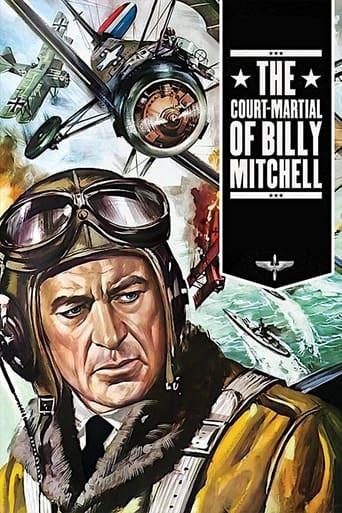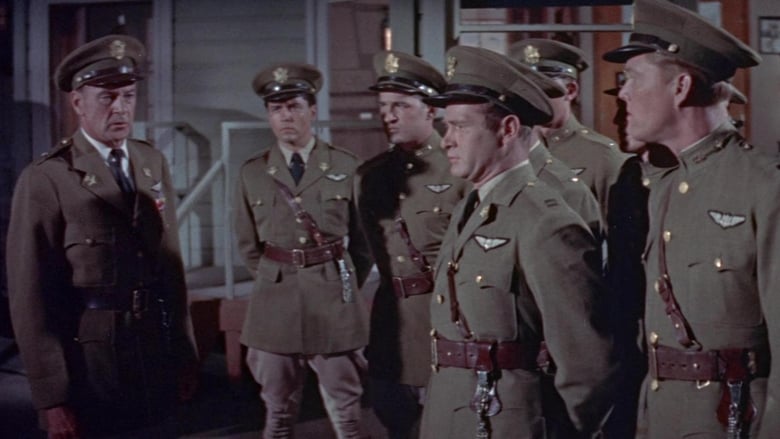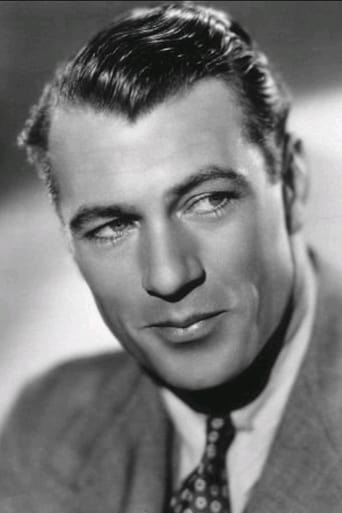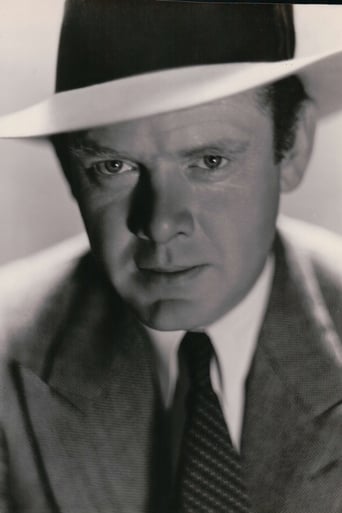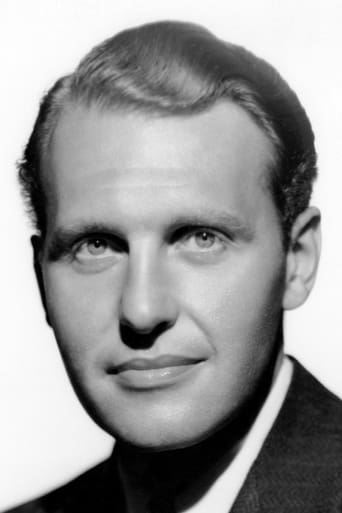The Court-Martial of Billy Mitchell (1955)
A dramatization of the American general and his court martial for publically complaining about High Command's dismissal and neglect of the aerial fighting forces.
Watch Trailer
Cast


Reviews
Admirable film.
It's easily one of the freshest, sharpest and most enjoyable films of this year.
Let me be very fair here, this is not the best movie in my opinion. But, this movie is fun, it has purpose and is very enjoyable to watch.
By the time the dramatic fireworks start popping off, each one feels earned.
Otto Preminger's "The Court-Martial of Billy Mitchell" isn't that well known and it's easy to see why. It's something of a dull history lesson about the court-martial of a former general, demoted to colonel for disobeying orders and now charged with accusing the powers-that-be with criminal intent for their disregard of a fledgling airforce. Mitchell himself is played by Gary Cooper, looking stiff in his uniform, and old-timers Ralph Bellamy and Charles Bickford are the men for and against him. Rod Stieger is also on hand, lending the film a touch of gravitas as a hotshot army lawyer, a role George C Scott would play in Preminger's much better contribution to the courtroom drama, "Anatomy of a Murder". Preminger shoots the film in widescreen and visually it is impressive but it's also more than a little on the turgid side.
"The Court Martial of Billy Mitchell" is an interesting look at the American military in the years after the end of World War I (Nov. 11, 1918). Some of the names have been changed, and some are fictional. Some details have been revised. But, overall, it's an accurate look at a time in American history and an event that was quite controversial.Billy Mitchell was the top American officer with flying experience at the end of WWI. He rose quickly through the ranks, and very early on was convinced of the future of air power and need for an air force. He was well known and liked by the public and the press. But, he soon got into hot water for his criticism of military leadership and his constant nagging of the top brass about the air service. America was reducing its military after the war, and defense dollars were tight. Well before generals George Patton and Douglas MacArthur questioned American military strategies in WW II, Billy Mitchell stuck his neck out to call military leadership incompetent. Yet, the court-martial of a general is rare in history. There might well have been some things other than insubordination that led to Mitchell's court-martial. All of that is played out well in this film. The cast is very good overall. And, while Gary Cooper does a fine job of acting, his rendition of Mitchell doesn't fit the real character. Mitchell was flamboyant and outgoing, where Cooper here is quiet and withdrawn. The real Mitchell had been more vocally critical for some time, and not withdrawn. But he did respect the service as the movie implies.Mitchell's criticism came to a head in September 1925, when he issued a statement to the press. It was prompted by the crash of the Shenandoah zeppelin and death of many of its crew, and then three seaplane crashes enroute from California to Hawaii. Mitchell said, "These incidents are the direct result of the incompetency, criminal negligence and almost treasonable administration of the national defense by the Navy and War Departments." In October, the government brought the court-martial charges. But, it should be noted that after a 1924 inspection of Hawaii, Mitchell had returned and written a 324- page report in which he predicted an attack on Pearl Harbor and war with Japan. Perhaps that public information was too much of a hot potato for the U.S. government to handle. In the movie, Maj. Guillion (played by Rod Steiger) reads from Mitchell's report that says carrier-based planes will lay 150 miles off Hawaii and attack it. But, according to numerous other sources, Mitchell didn't think that carriers would be practical. Instead, he saw the attack coming from Japanese bases on other islands. In the movie, Billy doesn't want his counsel to challenge Gen. Jimmy Guthrie as president of the court, because he is a friend. That character, played by Charles Bickford, is fictional. In real life, Billy's attorney, Congressman Reid (played by Ralph Bellamy) challenged three of the 13 judges for bias. All of them were removed, to leave the court with 10 men as the films shows. Major General Charles Summerall, the president of the court, was one of them removed.A scene during the court-martial is noteworthy. Gen. MacArthur is one of the members of the court, then a major general. He says to the others behind doors that high-ranking officers should be able to voice their opinions as a matter of free speech under the constitution. He said that was something quite different than insubordination. The court, in secret ballot, with two-third concurring, found Mitchell guilty of insubordination. Later research found that MacArthur had voted for acquittal. Mitchell's sentence was suspension from active duty for five years without pay. The movie ends with Mitchell watching as a squadron of planes flies overhead. In real life, President Coolidge changed his sentence to half pay, but Mitchell instead resigned on Feb. 1, 1926. He spent the next decade writing about and campaigning for air power. He died in 1936 at age 56 from influenza and other complications, including a bad heart. Mitchell is considered the father of the U.S. Air Force. After his death, he was given many honors. Franklin Roosevelt made him a two- star general. But, as assistant secretary of the Navy (1913-20), Roosevelt once had called Mitchell "pernicious." Many places and things have been named after Mitchell. It's too bad he didn't live until 1942 so he could be officially and publicly exonerated after the Japanese attack on Pearl Harbor.
Unsurprising that a noted Western star like Cooper was chosen for the lead role. In the film Mitchell is really the Lone Ranger. His best friend is not a horse but an aeroplane. He pursues his idea of right. He defies the US Marshall. The townsfolk meanwhile rally around him.The real Billy Mitchell was a pretty rough diamond. Presumably he did issue a press statement in effect accusing high-ups of treason. Cooper portrays a much gentler type; he would never have used such language. Incongruous then to find him doing just that.A final historical note. At one point Mitchell gives a pretty accurate forecast of the Japanese attack on Pearl Harbour. Was this brilliant foresight or did the Japanese read the court proceedings?
In the USAF we were taught about Billy Mitchell as being the "Father of the Air Force", and how he sacrificed his career to bring attention to his points.What a good movie. Rod Steiger did steal the scenes, and I suspect that James Cagney would have made a better movie... but I found myself becoming drawn in by Gary Cooper's portrayal of Billy Mitchell. He might have been a bit long in the tooth, but remember, the real Billy Mitchell was 46 years old at the time of his Court Martial, at about the age when he should start thinking about retirement anyhow.It plays like a stage play; the story is enough to make a powerful punch. 2 Thumbs Up. See it. Get it on DVD if you can, so you can read the subtitles and not miss a thing.

